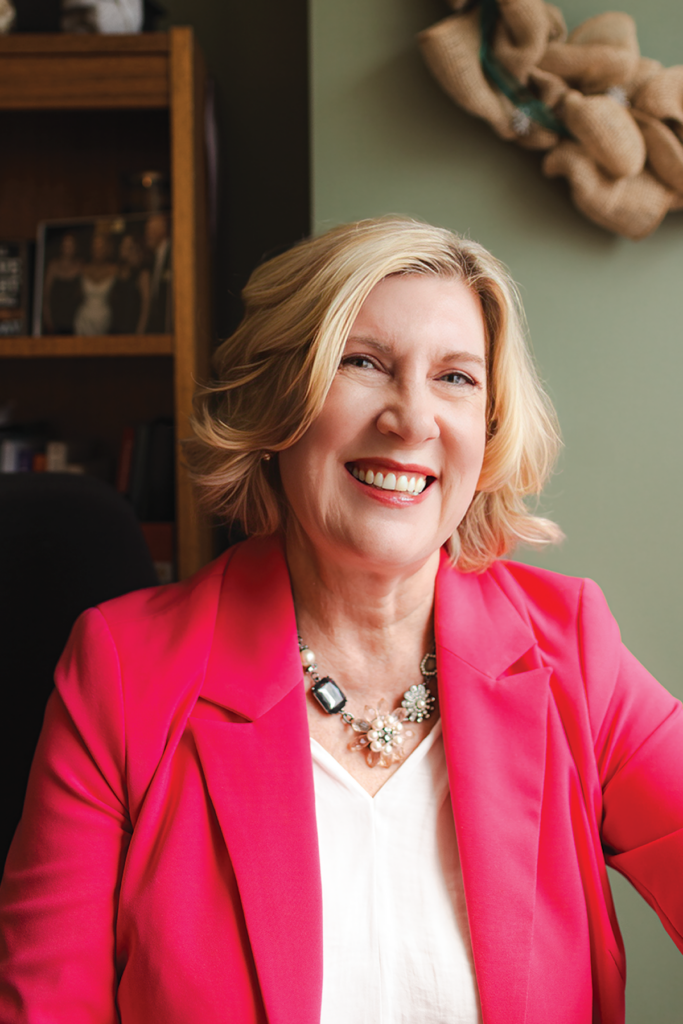The community knows Heartland Family Service as a nonprofit that provides advocacy, education, and counseling and support services through three primary program areas: child and family well-being; counseling and prevention; and housing, safety, and financial stability. So, what’s the connection between HFS and the BrainWorks Institute, a new initiative rooted in human brain science that will primarily be serving workplaces?
“It’s structured to be almost like a social enterprise within our organization,” said John Jeanetta, President & CEO of Heartland Family Service.
BrainWorks Institute started in the aftermath of the COVID-19 pandemic.“We were hearing over and over again from different people in our community about what a struggle it has been, since the pandemic, with employees unable to manage their emotions—like people having a super-short fuse, people just resigning and leaving, things coming up in the workplace they had just never seen before,” Jeanetta explained. “So, there’s this real sense of overwhelm coming from lots of different directions related to the pandemic and all the things that happened around that time.”
Since HFS team members serve people in crisis, the organization has developed many best-practice tools over time to help employees manage their emotional responses and understand clients better.
“In our business, if our employees aren’t super-grounded, our clients aren’t going to get the service that they need,” Jeanetta said. “We don’t have very long to prove to them that we are going to provide a safe space for them.”
Accordingly, HFS considered how to apply their processes to other organizations. “We realized that we have something to offer, and we could take some of the training that we do internally and make some changes, make it more universal for any kind of a business setting,” Jeanetta said. “[We can] bring that information to places that haven’t had the chance to hear it yet and make sure it’s grounded in research, especially brain science, because that research has really proliferated in the last few years.”
Sonia Keffer, Director of Learning & Development for HFS, said the BrainWorks Institute incorporates brain science research such as the SCARF model created by David Rock, author of “Your Brain at Work” and co-founder of the NeuroLeadership Institute, which uses neuroscience to understand individuals’ motivations and helps groups work more effectively together. The acronym represents “Status, Certainty, Autonomy, Relatedness, and Fairness.”
“We also share some pieces of a program called ‘C3 De-escalation’ training that was created by Andra Medea out of Chicago,” Keffer said. “A big part of what that research tells us comes from Dr. Amy Arnsten from Yale. She’s the preeminent prefrontal cortex researcher at Yale right now. She discovered, along with the work of John Gottman, that when we escalate or when we feel triggered in some way, we flood our brain with adrenaline.”
The chemical process then interferes with how people process information and respond, Keffer said. “We can’t just simply tell people to calm down or try to rationalize with them, because that part of the brain is ‘offline.’ We as leaders can learn how to help people and ourselves be able to let that adrenaline work its way through and reconnect that higher brain back in,” she said.
Keffer explained that other brain science research is also being incorporated into BrainWorks Institute programming. “We have people in the agency that are trained in other things [that] we can offer organizations.”
Matthew Cade’s company, Rebellion Fabrication, is a metal fabricator based in Wahoo, Nebraska. It serves general contractors, large fabricators, and architects and engineers throughout the country. Cade, whose role includes managing employees and holding them accountable, said he attended BrainWorks Institute pilot training earlier this year in the interest of becoming a better leader and motivator.
“Understanding the right way to communicate helps build the right culture. It helps align everybody to know that, as a leader, I care about them individually and I’m willing to invest in them,” he said. “At Rebellion, we say everybody in the company needs to feel three things: For us to win, they need to feel a part of something bigger, which is the vision for the company. They need to feel consistently appreciated for what they do, which means they’re in the right seat and they’re given the opportunity to be successful. And they need to have a voice that matters. BrainWorks kind of takes that and creates those opportunities for the right conversations… communicating one way to one person is not heard the same way to another person.”
While BrainWorks Institute training is science-based, the HFS team is also working to make it accessible and practical, Keffer said. The current vision involves presenting the program in four half-day components including an introductory session that can stand alone.
“It’s not like attending a huge college course,” she said. “I think of this training very much as some things that maybe someone is already doing, but doesn’t know why they work. And what are some things they can keep in mind, especially around psychological safety, that they may have been hearing about but are not quite sure how it pertains to themselves as a leader? Anyone can attend this training, and you will ‘get it.’ You will leave with tools that you can use that day.”
For more information, contact Sonia Keffer at heartlandfamilyservice.org.
This article originally appeared in the June/July 2024 issue of B2B Magazine. To receive the magazine, click here to subscribe.












